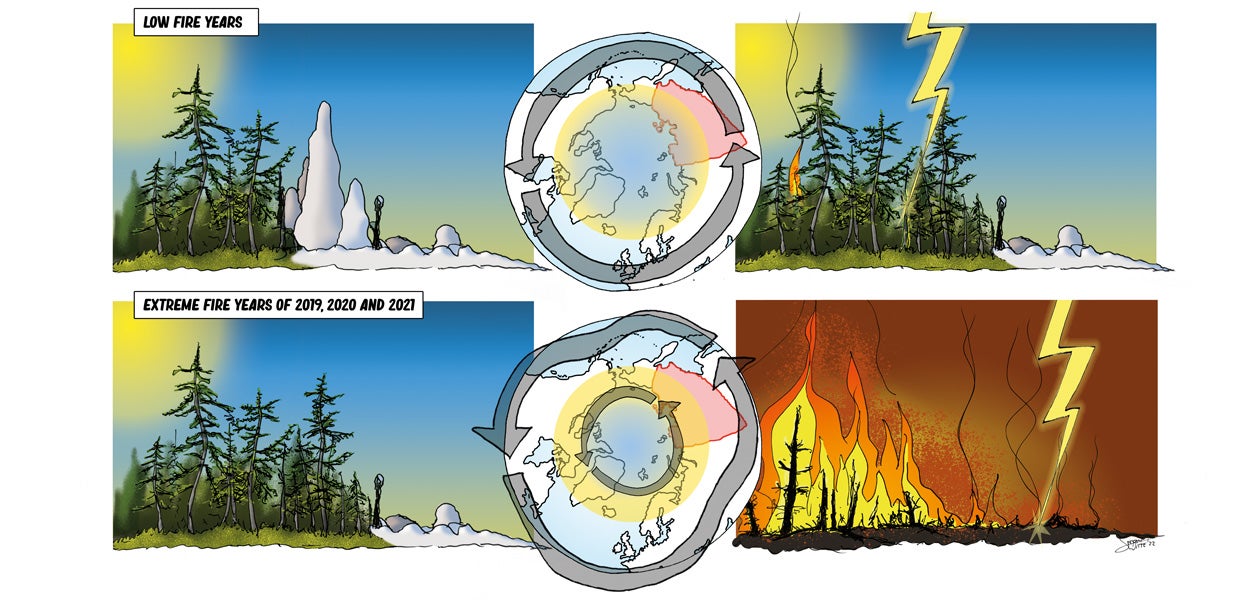Wildfires in the Arctic may seem a contradiction in terms, but the climate is warming faster in the tundra and boreal forests of this part of the world than anywhere else. In Siberia, Russia, the earth is warming rapidly. This nurtures the growth of woody plants such as shrubs and trees, which are highly flammable. At the same time, more heatwaves and lightning storms lead to more forest and tundra fires.
In the Arctic, a great deal of carbon is stored in the ground. The topsoil often consists of carbon-rich peat layers, and fire releases some of this carbon in the form of greenhouse gases. In addition, most of the soil is permanently frozen, and this ‘permafrost’ stores a great deal of carbon. After a fire, the permafrost can partially thaw, releasing even more greenhouse gases. During field research in Siberia, Sander Veraverbeke and his team collect data on how long it takes for the ecosystem to recover after a forest fire, how much carbon is released during such fires, and how all this affects the climate.
The research is part of a large international project, ‘Fires pushing trees north’, from 2018 to 2023. The project is funded by the Dutch Research Council (NWO) and affiliated with NASA’s Arctic-Boreal Vulnerability Experiment (ABoVE).




